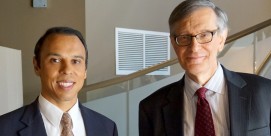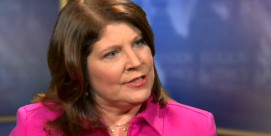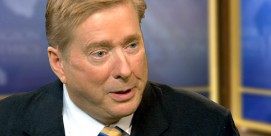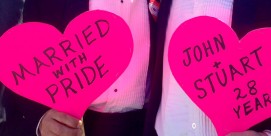In This Episode << SLIDE LEFT TO SEE ADDITIONAL SEGMENTS
Look Back 2009
KIM LAWTON, managing editor, Religion & Ethics NewsWeekly: President Barack Obama took office on a strong note of hope, and he signaled right off the bat that religion would have a role in his new administration.
Pres. OBAMA (in inaugural speech): We are a nation of Christians and Muslims, Jews and Hindus, and nonbelievers.
LAWTON: He expanded President Bush’s faith-based office and set up an unprecedented new advisory council of top religious leaders. Many of his speeches included religious rhetoric, notably, his controversial visit to Notre Dame where he called for a new common ground on abortion, and his address while accepting the Nobel Peace Prize. One of his most important speeches was at Cairo University in Egypt, where he pledged a new and improved relationship between the US and the Muslim world.
American Muslims praised the Cairo speech as a defining moment in their efforts to be considered part of the American mainstream. But the Muslim community also faced new challenges about extremism in its midst after the Fort Hood massacre–allegedly by a Muslim Army officer–and the arrests of five young American Muslim men who were suspected of going to Pakistan to join terrorists.
Religious activists waged aggressive campaigns for health care reform. But their efforts were hampered by a divisive battle over funding for coverage of abortions. Faith leaders actively lobbied on both sides of that question.
Lawmakers in Vermont, New Hampshire, Maine and the District of Columbia all approved measures to legalize same-sex marriage. However, voters in Maine overturned that state’s law before it could take effect. The new laws put increasing pressure on religious denominations about whether their clergy should be allowed to marry gay couples.
Issues surrounding homosexuality continued to divide mainline Protestants. The Evangelical Lutheran Church in America voted to allow local congregations to hire non-celibate gay and lesbian pastors. Opponents are now moving to split off and form their own denomination. Delegates to the Episcopal Church’s General Convention voted to end their moratorium on gay bishops. The Episcopal Diocese of Los Angeles then elected a lesbian assistant bishop, whose election must still be confirmed by representatives of the entire Episcopal Church. The US actions heightened tensions within the worldwide Anglican Communion.
Meanwhile, Pope Benedict the Sixteenth made it easier for disaffected Anglicans to convert to Roman Catholicism. The Vatican announced new structures that will allow converting Anglicans to retain some of their distinctive beliefs and practices. During a trip to the Holy Land, Benedict worked to mend fences with the Jewish community after he lifted the excommunication of a traditionalist bishop who denied the Holocaust.
The recession continued to take a toll on faith-based groups and the people they serve. Religious institutions were forced to slash their budgets and lay-off staff even as they were asked to do more to help people. The Jewish community also felt the fallout from the Bernie Madoff scandal with many Jewish organizations losing millions of dollars.
And, as the world faced a swine-flu epidemic, religious groups were among those struggling to respond. Congregations made changes in their worship practices to help stop the spread of H1N1. New preventive policies were also instituted at this year’s hajj, or pilgrimage to Mecca.







